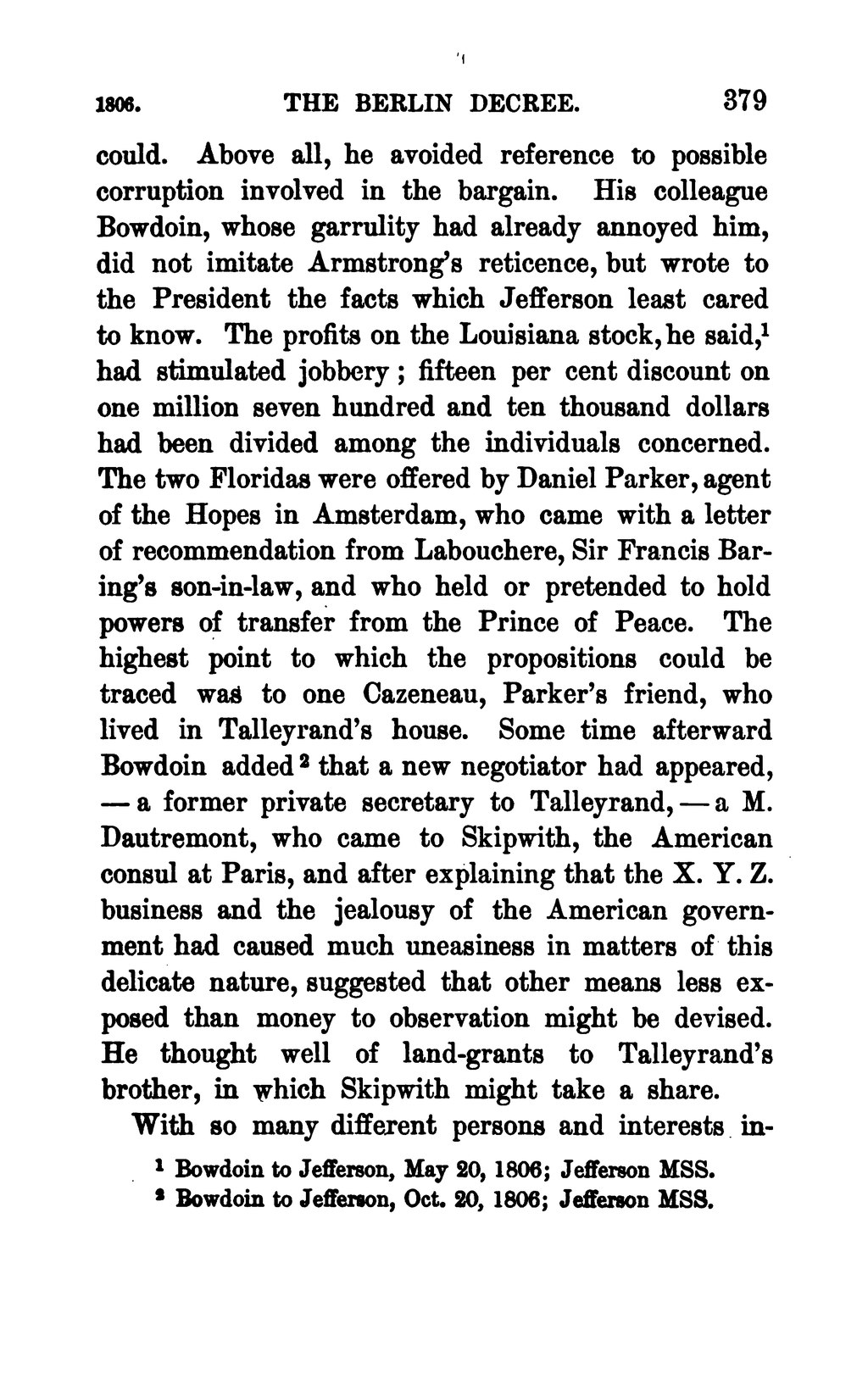could. Above all, he avoided reference to possible corruption involved in the bargain. His colleague Bowdoin, whose garrulity had already annoyed him, did not imitate Armstrong's reticence, but wrote to the President the facts which Jefferson least cared to know. The profits on the Louisiana stock, he said,[1] had stimulated jobbery; fifteen per cent discount on one million seven hundred and ten thousand dollars had been divided among the individuals concerned. The two Floridas were offered by Daniel Parker, agent of the Hopes in Amsterdam, who came with a letter of recommendation from Labouchere, Sir Francis Baring's son-in-law, and who held or pretended to hold powers of transfer from the Prince of Peace. The highest point to which the propositions could be traced was to one Cazeneau, Parker's friend, who lived in Talleyrand's house. Some time afterward Bowdoin added [2] that a new negotiator had appeared,—a former private secretary to Talleyrand,—a M. Dautremont, who came to Skipwith, the American consul at Paris, and after explaining that the X. Y. Z. business and the jealousy of the American government had caused much uneasiness in matters of this delicate nature, suggested that other means less exposed than money to observation might be devised. He thought well of land-grants to Talleyrand's brother, in which Skipwith might take a share.
With so many different persons and interests involved
